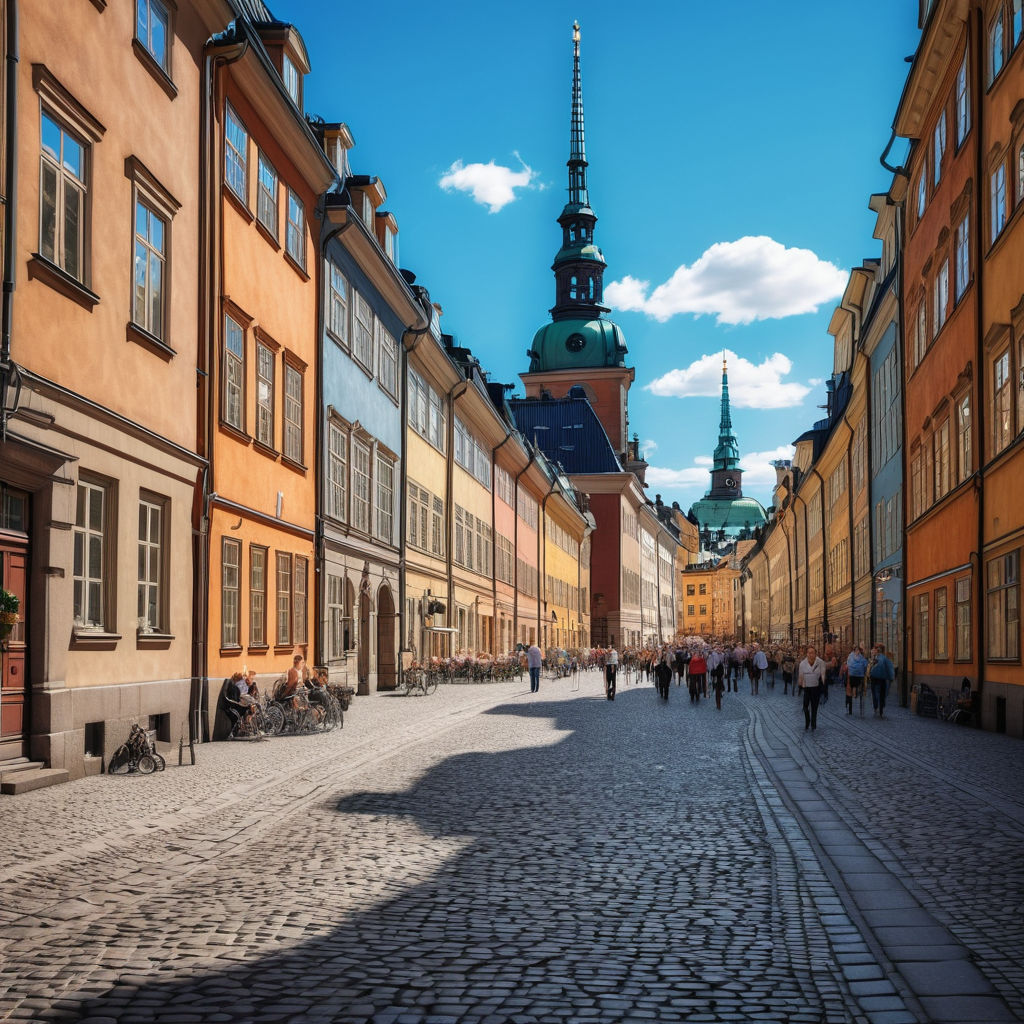Discover Sweden: A Blend of Ancient Traditions and Modern Innovation
Exploring Sweden’s Rich Heritage, Social Dynamics, and Cross-cultural Engagement

Introduction to Sweden
Sweden, officially known as the Kingdom of Sweden, is located in Northern Europe, bordering Norway to the west and north, Finland to the east, and Denmark to the southwest via a bridge-tunnel across the Öresund Strait. Major cities include Stockholm (the capital), Gothenburg, and Malmö. Sweden’s rich cultural heritage is a blend of ancient Norse traditions and modern Scandinavian influences, reflecting its history as a center of trade and innovation. The country is renowned for its stunning natural landscapes, from the archipelagos in the Baltic Sea to the northern lights in Lapland, as well as its contributions to literature, music, and design.
Cross-national and Cross-cultural Understanding
Swedes generally engage with other cultures with openness, curiosity, and respect. The country’s long history of neutrality and its role as a mediator in international conflicts have fostered a deep appreciation for cultural diversity and international cooperation. Sweden actively promotes cross-cultural understanding through various initiatives and programs. Significant cultural exchanges and educational programs highlight Sweden’s commitment to fostering global engagement. Institutions such as the Swedish Institute and Uppsala University promote Swedish culture internationally through events, exhibitions, and language courses. Additionally, the government supports scholarships and exchange programs, such as the Swedish Institute Scholarships for Global Professionals (SISGP), which promote academic and cultural exchanges, fostering mutual understanding. International partnerships also enhance cross-cultural understanding. Sweden is an active member of international organizations such as the United Nations, the European Union, and the Nordic Council, promoting cultural cooperation and exchange. These partnerships facilitate student exchanges, collaborative research projects, and cultural festivals, strengthening Sweden’s cultural ties with the world.
Interactions and Social Dynamics
Interactions between Swedes and foreigners are typically characterized by politeness, friendliness, and a strong sense of equality. Swedish social behaviors are influenced by cultural values such as "lagom" (moderation), "jämlikhet" (equality), and "fika" (a coffee break that emphasizes social connection). These values are often reflected in the way Swedes engage with outsiders. Social behaviors in Sweden emphasize respect and politeness in initial interactions, often maintaining a level of formality. Greetings typically involve a handshake, and maintaining personal space is important. Hospitality is significant in Swedish culture, and guests are often treated with great care and respect, frequently invited to share meals and participate in social gatherings, especially during holidays and special occasions. Communication styles in Sweden are generally direct yet polite. Swedes value honesty and clarity in communication, often engaging in straightforward and respectful discussions. Non-verbal communication, such as body language and eye contact, plays a significant role in interactions, adding to the overall expressiveness of conversations. Language plays a crucial role in facilitating interactions. Swedish is the official language of Sweden, while English is widely spoken, especially among the younger generation and in urban areas. Additionally, many Swedes are proficient in other European languages, reflecting the country’s emphasis on multilingualism in education and professional settings.
Views on Dating and Relationships
Dating and relationships between Swedes and foreigners are becoming more common, particularly among younger generations and in urban areas. Swedish society tends to be liberal about relationships, with a strong emphasis on individual choice and mutual respect. There is a growing openness towards cross-cultural relationships as opportunities for international exposure increase. In Swedish dating culture, there is often a strong emphasis on equality and mutual respect. Relationships are typically pursued with a long-term perspective, and traditional gender roles are less pronounced compared to some other cultures. Men and women are expected to be equal partners, sharing responsibilities and decision-making. Cultural expectations and traditions, such as the importance of independence and personal space, can impact relationships. Understanding and respecting these cultural norms is essential for successful cross-cultural relationships in Sweden.
Marriage and Family
Marrying foreigners is widely accepted in Sweden, though it comes with certain social and familial considerations. Legal considerations for such marriages involve specific regulations governed by Swedish civil law. There is no pressure for non-Lutheran spouses to convert to Lutheranism, reflecting the country’s secular and inclusive approach to marriage. Socially, Swedish families are generally open to cross-cultural marriages, although there may be initial reservations about cultural differences and social compatibility. However, acceptance typically increases as relationships develop and families get to know the foreign partner. Family plays a central role in Swedish culture, and marrying into a Swedish family often involves participating in family gatherings and traditions. Common practices in cross-cultural marriages include celebrating both Swedish and foreign traditions, creating a blended cultural environment. For example, a couple might celebrate Swedish holidays like Midsummer and Christmas alongside holidays from the foreign partner’s culture.